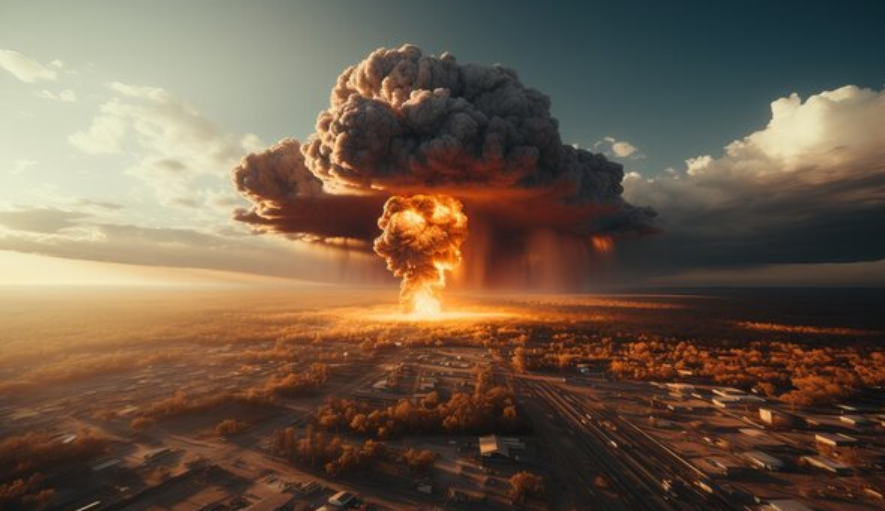In recent years, the issue of nuclear waste disposal has garnered significant attention due to its potential health risks. “The Impact of Nuclear Waste on Health in Asia: What You Need to Know” explores these concerns in detail, shedding light on the dangers posed by nuclear waste and how they affect public health. This comprehensive guide aims to provide valuable insights into the health implications of nuclear waste in Asia.
The Impact of Nuclear Waste on Health in Asia: What You Need to Know
Nuclear energy, while providing a significant source of power, generates waste that can be hazardous to human health. The disposal and management of nuclear waste are critical issues that need to be addressed to mitigate potential health risks.
The Impact of Nuclear Waste on Health in Asia: What You Need to Know
Asia, being home to several nuclear power plants, faces unique challenges related to nuclear waste management. The health impacts of nuclear waste can be profound, affecting not just the immediate environment but also the broader population.
Radiation Exposure
One of the primary health risks associated with nuclear waste is radiation exposure. When nuclear waste is not properly contained, radioactive materials can leak into the environment, leading to increased radiation levels. Prolonged exposure to radiation can cause a range of health issues, from acute radiation sickness to long-term effects such as cancer and genetic mutations.
Water Contamination
Nuclear waste can also contaminate water sources, posing a significant health hazard. Radioactive materials can seep into groundwater or be carried into rivers and lakes, contaminating drinking water supplies. This can lead to internal radiation exposure when people consume contaminated water or food. Long-term ingestion of radioactive substances can result in severe health problems, including thyroid disorders and bone marrow diseases.
Soil Contamination
In addition to water, nuclear waste can contaminate soil. This contamination can affect agriculture, as radioactive particles can be absorbed by crops, entering the food chain. Consuming contaminated food can lead to internal exposure to radiation, which poses serious health risks. Soil contamination also makes land unsuitable for farming, impacting food security and livelihoods.
Addressing the Health Impacts of Nuclear Waste
Addressing the health impacts of nuclear waste requires a multi-faceted approach, involving stringent regulations, advanced technology, and public awareness.
Improved Waste Management Practices
To mitigate the health risks associated with nuclear waste, it is crucial to adopt improved waste management practices. This includes ensuring that nuclear waste is securely stored in containment facilities designed to prevent leaks and environmental contamination. Advanced technologies, such as vitrification (turning waste into glass), can help immobilize radioactive materials, reducing the risk of exposure.
Regulatory Measures
Governments in Asia must enforce strict regulatory measures to oversee nuclear waste management. These regulations should cover the entire lifecycle of nuclear waste, from generation to disposal. Regular inspections and monitoring are essential to ensure compliance with safety standards and to detect any potential leaks or breaches promptly.
Public Education and Awareness
Educating the public about the risks associated with nuclear waste and how to protect themselves is vital. Public awareness campaigns can help inform communities living near nuclear facilities about safety measures and emergency procedures. Additionally, transparency from authorities regarding the status of nuclear waste management can build public trust and cooperation.
Case Studies: Impact of Nuclear Waste in Asia
To understand the real-world impact of nuclear waste on health in Asia, let’s look at some case studies from different countries in the region.
Japan’s Fukushima Disaster
The Fukushima Daiichi nuclear disaster in 2011 highlighted the severe consequences of inadequate nuclear waste management. The meltdown resulted in significant radioactive contamination, affecting the environment and public health. Studies have shown increased cases of thyroid cancer among children and elevated radiation levels in local water and soil.
India’s Kalpakkam Nuclear Facility
In India, the Kalpakkam nuclear facility has faced criticism for its handling of nuclear waste. Reports of groundwater contamination and health issues among local communities have raised concerns about the facility’s waste management practices. This case underscores the importance of robust waste containment and regular monitoring.
South Korea’s Radioactive Waste Management
South Korea has made strides in improving its nuclear waste management, but challenges remain. The country has implemented advanced waste treatment technologies and strict regulatory frameworks. However, public opposition and safety concerns continue to shape the debate around nuclear energy and waste disposal.
Conclusion
In conclusion, “The Impact of Nuclear Waste on Health in Asia: What You Need to Know” highlights the significant health risks posed by nuclear waste. From radiation exposure to contamination of water and soil, the consequences can be severe. Addressing these issues requires improved waste management practices, stringent regulatory measures, and public education. By taking these steps, we can mitigate the health impacts of nuclear waste and ensure a safer environment for future generations.
FAQ
Q: What are the primary health risks associated with nuclear waste?
A: The primary health risks include radiation exposure, water contamination, and soil contamination, all of which can lead to serious health issues such as cancer, thyroid disorders, and genetic mutations.
Q: How can radiation exposure from nuclear waste be prevented?
A: Preventing radiation exposure involves securely storing nuclear waste in containment facilities, using advanced technologies to immobilize radioactive materials, and regularly monitoring for leaks or breaches.
Q: What measures are being taken in Asia to manage nuclear waste?
A: Measures include improved waste management practices, strict regulatory frameworks, and public awareness campaigns to educate communities about the risks and safety procedures.
Q: How does water contamination from nuclear waste occur?
A: Water contamination occurs when radioactive materials seep into groundwater or are carried into rivers and lakes, leading to internal radiation exposure when people consume contaminated water or food.
Q: Why is public education important in managing the health impacts of nuclear waste?
A: Public education is important because it helps inform communities about the risks, safety measures, and emergency procedures, fostering cooperation and trust in the authorities’ efforts to manage nuclear waste.
